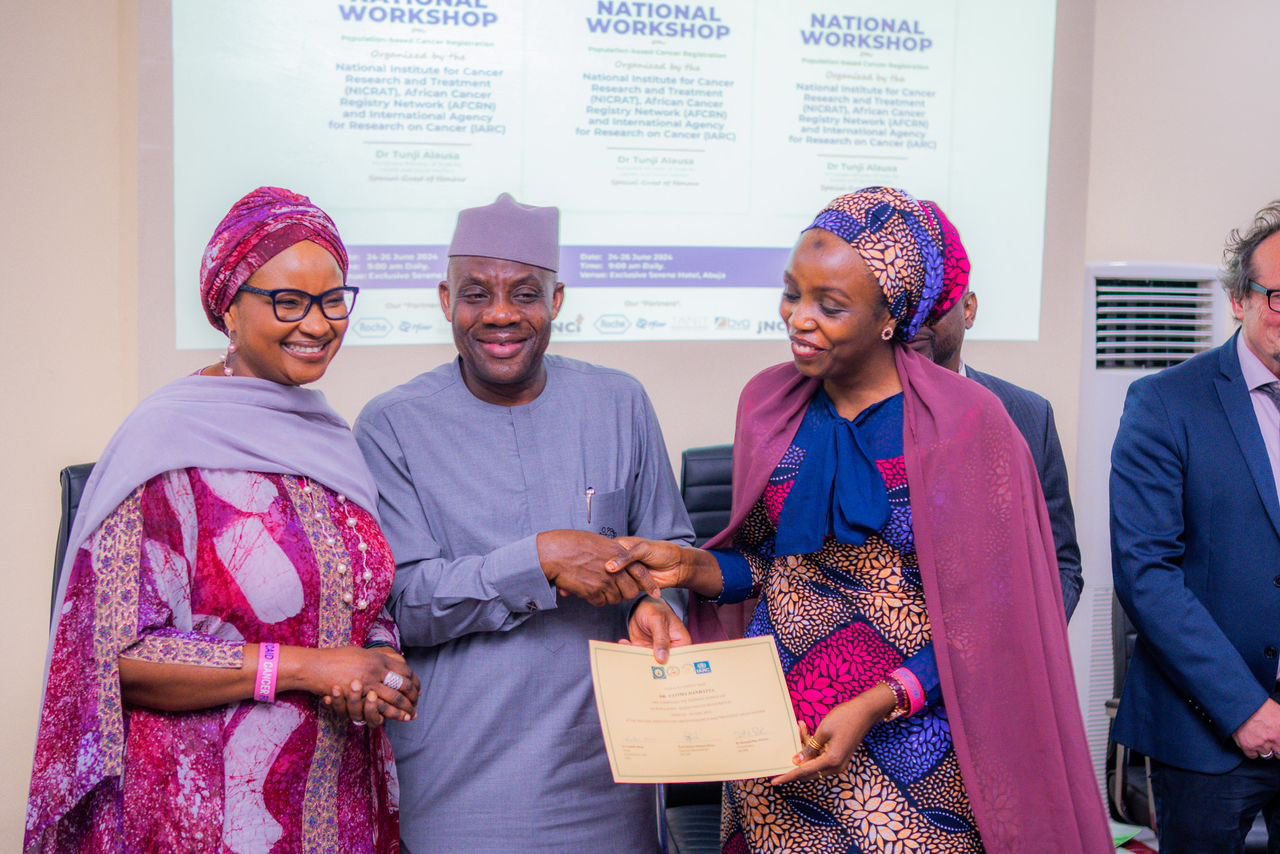Health
Tunji Alausa Hails New Cancer Registry Regulations In Nigeria: ‘Promises Profound Benefits’

Tunji Alausa has hailed new Cancer Registry Regulations in Nigeria, saying it promises profound benefits.
Eko Hot Blog reports that the Dr. Tunji Alausa, the Minister of State for Health and Social Welfare, says the Cancer Registry Regulations in Nigeria will enhance disease surveillance, treatment planning, and epidemiological research.
EDITOR’S PICKS
He spoke on Thursday at the Public Presentation of the National Cancer Registry Regulations.
The minister, who noted the prevalence of cancer in Nigeria, said the introduction of the regulations marks a pivotal moment in the nation’s healthcare landscape, promising profound benefits for public health, research, and policy formulation.
“The establishment of cancer registry regulations in Nigeria signifies a commitment to enhancing disease surveillance, treatment planning, and epidemiological research,” Dr. Alausa said.
“By mandating healthcare providers to report cancer cases to centralized registries, the government aims to create a comprehensive database that accurately reflects the burden of cancer within the country.
“This data-driven approach is essential for formulating evidence-based policies, allocating resources effectively, and monitoring the effectiveness of interventions over time.”

The minister further stated that, while the introduction of cancer registry regulations represents a significant achievement, several challenges must be addressed to ensure their successful implementation.
“These [challenges] include resource constraints, technological infrastructure, and capacity building among healthcare personnel responsible for data collection and reporting,” he said.
“Moreover, ensuring data privacy and confidentiality is paramount to maintaining public trust and maximizing participation in cancer registries.
“The implementation of cancer registry regulations is expected to improve the quality of healthcare delivery in Nigeria significantly.
“By promoting early detection through timely diagnosis and intervention, healthcare providers can mitigate the impact of cancer on individuals and communities.
“For healthcare professionals, cancer registries offer a platform for continuous professional development and collaboration.
“Access to real-time data empowers clinicians to make informed decisions, adopt best practices, and participate in multidisciplinary approaches to cancer care.
“This collaborative effort is essential for building a resilient healthcare system capable of addressing the growing burden of cancer in Nigeria.”

Meanwhile, Dr. Alausa said the Federal Ministry of Health and Social Welfare will continue to play a crucial role in facilitating the success of Nigeria Institute of Cancer Research and Treatment (NICRAT).
The minister, who thanked NICRAT and its partners African Cancer Registry Network for developing the regulations,
“We will work closely with all stakeholders, including international development partners, civil society organizations, and the private sector, to ensure the effective implementation,” he added.
According to estimates, over 124,000 new cases of cancer were recorded in Nigeria in 2020, resulting in 78,899 deaths.
FURTHER READING
Dr. Alausa says the data highlights the gaps in Nigeria’s response “which has yet to address the challenges of late diagnosis and limited access to quality care.”
Click here to watch our video of the week:
Advertise or Publish a Story on EkoHot Blog:
Kindly contact us at ekohotblog@gmail.com. Breaking stories should be sent to the above email and substantiated with pictorial evidence.
Citizen journalists will receive a token as data incentive.
Call or Whatsapp: 0803 561 7233, 0703 414 5611







